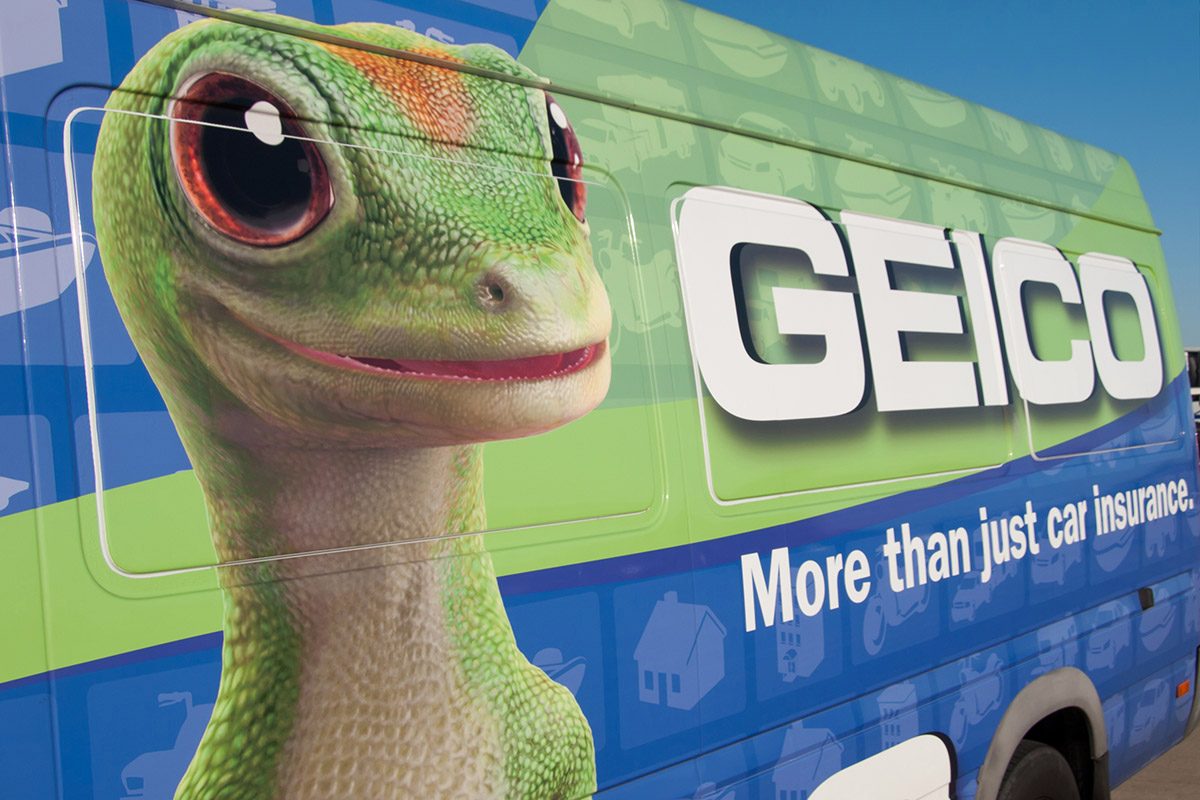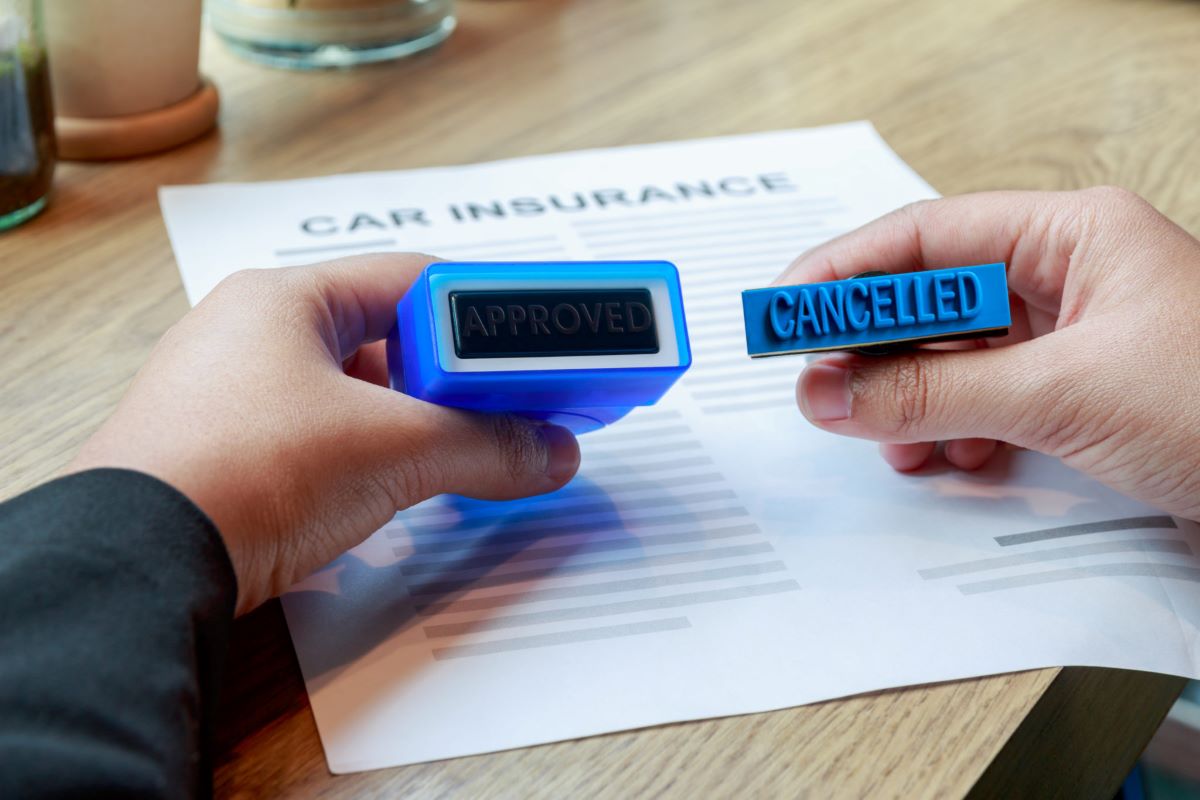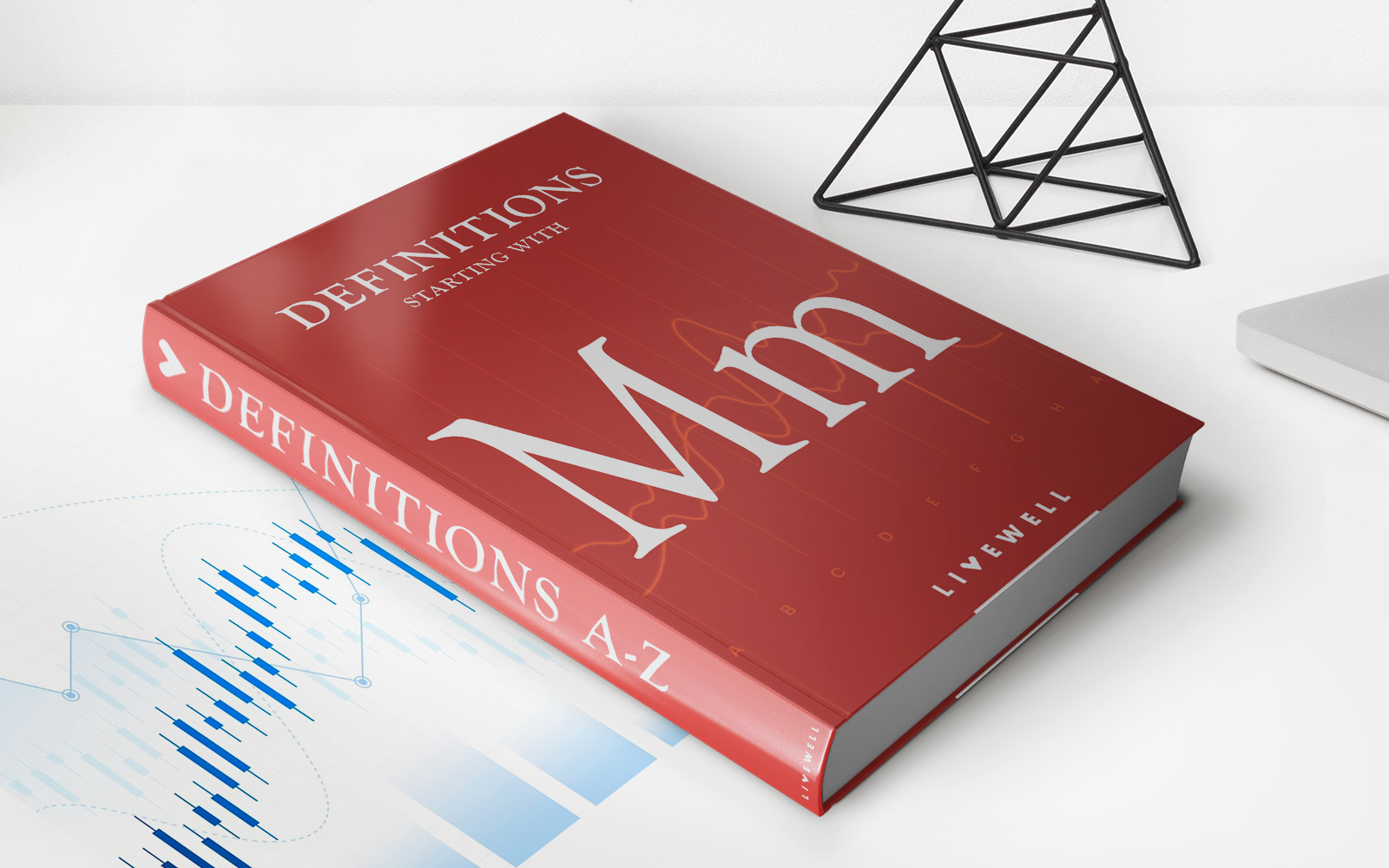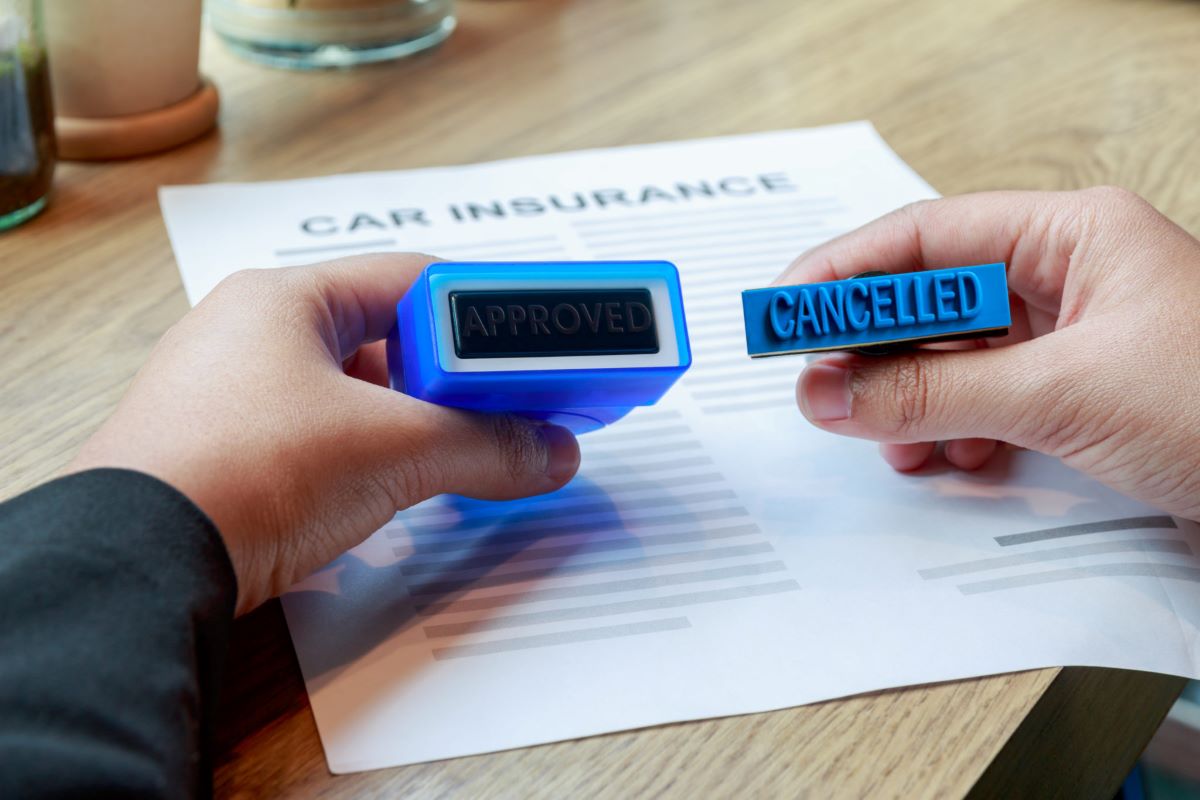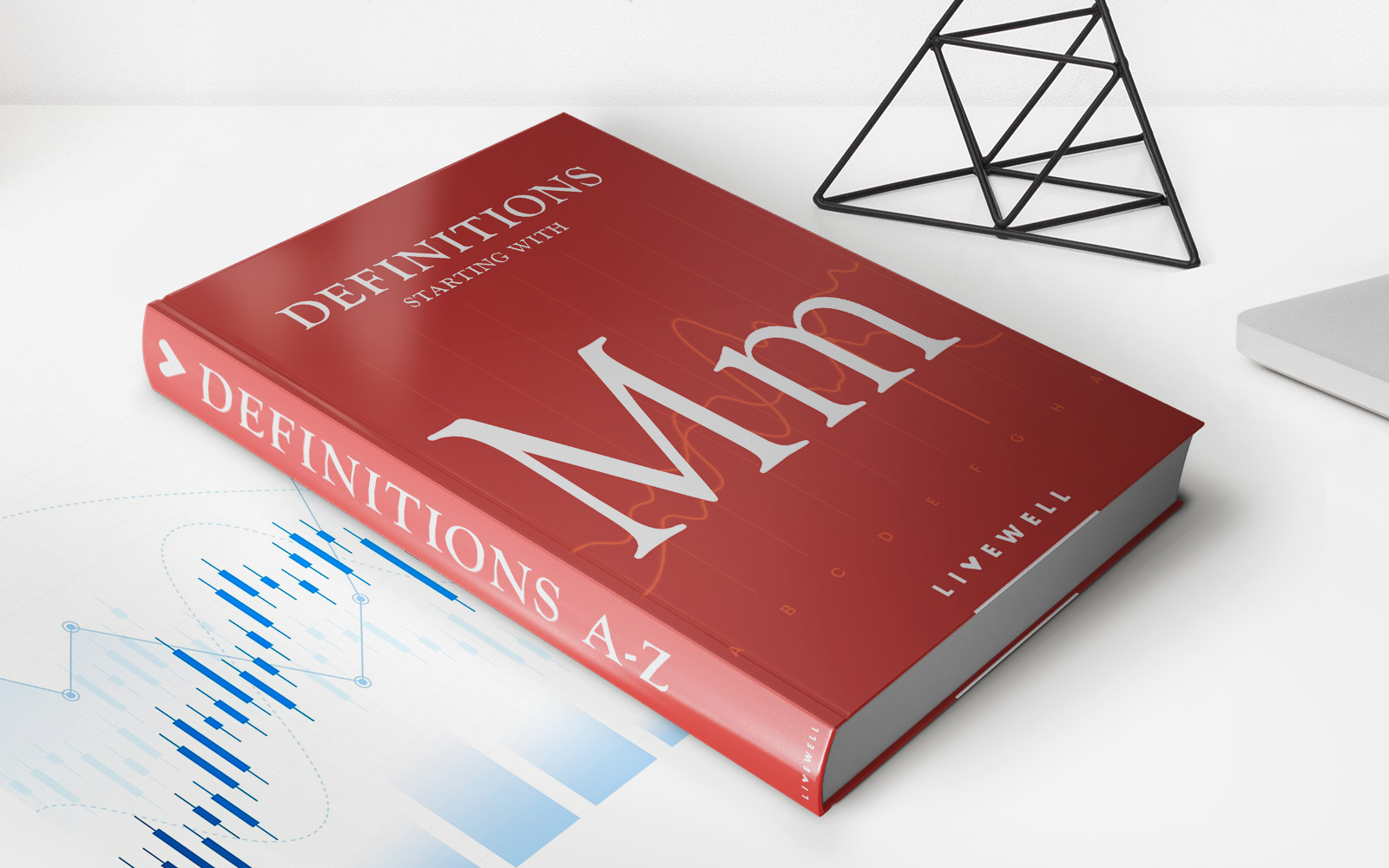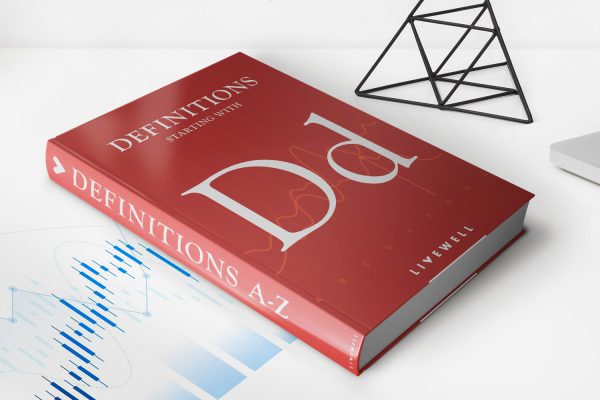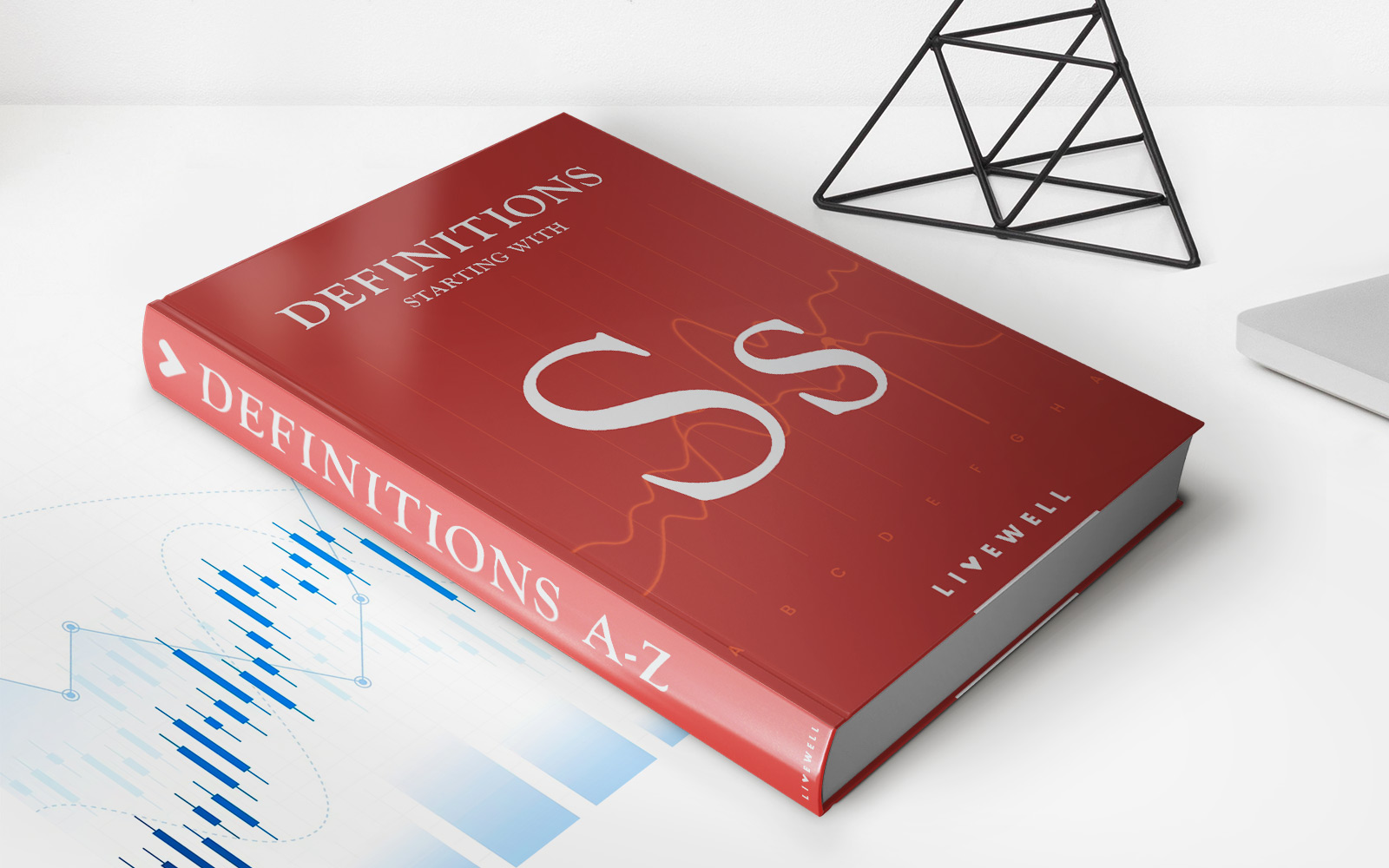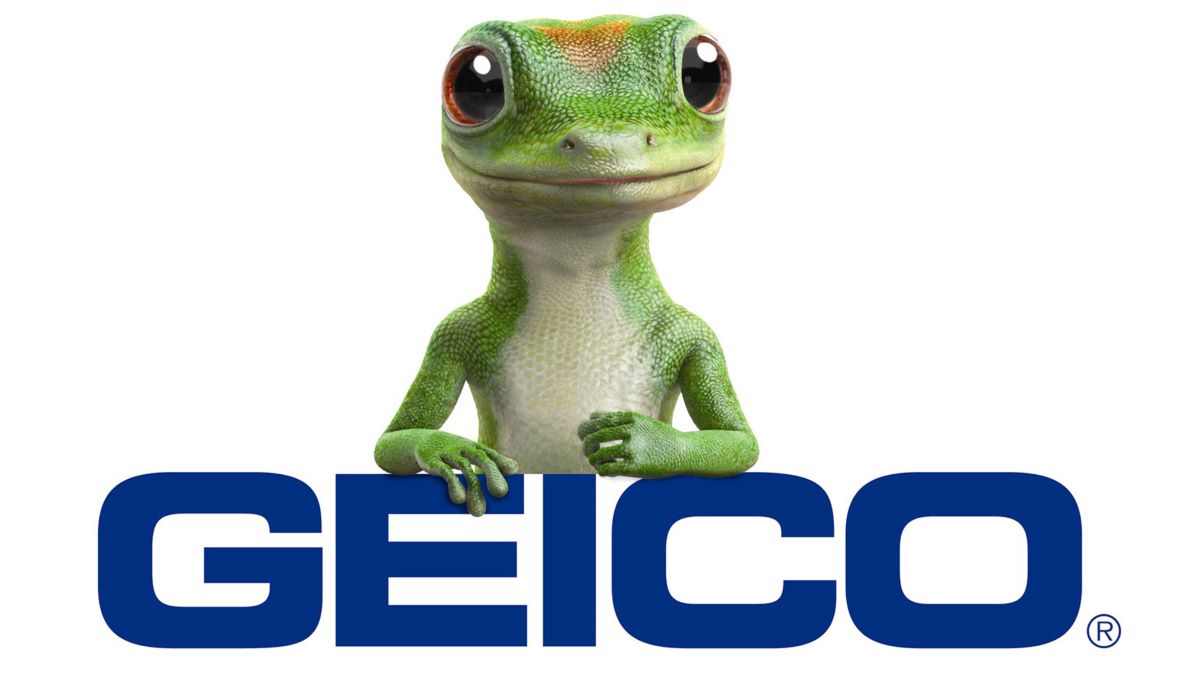

Finance
What Is Mechanical Breakdown Insurance Geico
Published: November 13, 2023
Protect your financial investment with Geico's mechanical breakdown insurance. Get coverage for unexpected vehicle repairs and peace of mind.
(Many of the links in this article redirect to a specific reviewed product. Your purchase of these products through affiliate links helps to generate commission for LiveWell, at no extra cost. Learn more)
Table of Contents
Introduction
Welcome to the world of mechanical breakdown insurance (MBI). Whether you’re purchasing a new car or already own a vehicle, unexpected breakdowns can be a frustrating and costly experience. That’s where mechanical breakdown insurance comes in. MBI is a type of insurance coverage that helps protect you from expensive repairs and replacements when mechanical components of your vehicle break down due to normal wear and tear.
When it comes to unexpected car repairs, most people think of traditional auto insurance. While auto insurance primarily covers you in the event of an accident or theft, mechanical breakdown insurance specifically focuses on safeguarding you against expensive mechanical failures.
Whether it’s a faulty transmission, a malfunctioning engine, or an electrical issue, these repairs can quickly add up and put a strain on your budget. Mechanical breakdown insurance steps in to provide financial protection so you don’t have to bear the full brunt of these expensive repairs out of pocket.
However, it’s important to note that mechanical breakdown insurance is different from an extended warranty, which is offered by the manufacturer or dealership. While both provide similar benefits, MBI can often be more flexible in terms of coverage options and eligibility criteria. In this article, we will explore the ins and outs of mechanical breakdown insurance, covering everything from coverage and benefits to costs and claim procedures.
So, if you’ve ever wondered what mechanical breakdown insurance is and how it can benefit you, continue reading to discover all the essential information you need to know about this unique type of insurance coverage.
What is Mechanical Breakdown Insurance?
Mechanical breakdown insurance (MBI) is a type of insurance coverage that protects you from costly repairs and replacements when mechanical components of your vehicle break down due to normal wear and tear. While auto insurance covers damages resulting from accidents or theft, MBI specifically focuses on mechanical failures.
When you purchase MBI, you enter into a contract with an insurance provider that agrees to cover the cost of certain mechanical repairs or replacements. These can include engine problems, electrical issues, transmission failures, and more. Depending on your policy, MBI can cover both parts and labor costs, alleviating the financial burden of unexpected breakdowns.
One of the benefits of MBI is that it allows you to choose where you get your repairs done. Unlike warranties offered by manufacturers or dealerships, which often require you to go to specific service centers, MBI gives you the freedom to choose a repair shop that you trust or are familiar with.
MBI is especially valuable for individuals who have older vehicles or vehicles that have exceeded the manufacturer’s warranty period. As vehicles age, the likelihood of mechanical failures increases, making MBI an essential coverage option to protect against costly repairs.
It’s important to note that MBI is not the same as an extended warranty. While they both provide similar benefits, MBI is typically more flexible in terms of coverage options and eligibility criteria. Extended warranties are usually offered by the manufacturer or dealership at the time of purchase, whereas MBI can be purchased separately from an insurance provider.
Overall, MBI offers peace of mind knowing that you are protected from unexpected mechanical failures without having to incur significant out-of-pocket expenses. It provides financial protection and allows you to continue using your vehicle with confidence, knowing that you have coverage in place.
Coverage and Benefits
Mechanical breakdown insurance (MBI) provides coverage for a wide range of mechanical failures that can occur in your vehicle. The specific coverage and benefits offered can vary depending on the insurance provider and policy you choose. It’s important to thoroughly review the terms and conditions of your MBI policy to understand the extent of the coverage. Here are some common areas of coverage and benefits offered by MBI:
1. Engine
MBI typically covers the repair or replacement costs of various engine components, including the cylinder head, piston rings, valves, and gaskets. If your engine fails or suffers significant damage, MBI can help cover the expenses associated with repairing or replacing these vital engine parts.
2. Transmission
Transmission failures can be a costly repair. MBI often covers the repair or replacement of transmission components, including the gears, clutch, torque converter, and transmission control module. This coverage can provide significant relief in the event of a transmission breakdown.
3. Electrical System
Modern vehicles rely heavily on complex electrical systems. MBI can cover repairs to components such as the alternator, starter motor, voltage regulator, and wiring harnesses. If you experience electrical system malfunctions, MBI can help cover the costs of repairing or replacing these components.
4. Heating and Cooling Systems
MBI can provide coverage for repairs to components of your vehicle’s heating and cooling systems, including the radiator, thermostat, water pump, and heater core. Having coverage for these systems can be especially valuable in extreme weather conditions.
5. Suspension and Steering
MBI often includes coverage for the repair or replacement of suspension and steering components. This can include control arms, ball joints, power steering pumps, tie rods, and more. If you experience issues with your vehicle’s suspension or steering, MBI can help cover the associated repair costs.
6. Other Components
In addition to the specific components mentioned above, MBI policies may also provide coverage for other mechanical components of your vehicle, such as the fuel system, exhaust system, brakes, and drivetrain. This comprehensive coverage ensures that you are protected from a wide range of potential breakdowns.
It’s important to note that MBI policies may have certain limitations and exclusions. It’s essential to review the terms and conditions of your policy to understand what is covered and what is not. Additionally, some MBI policies may offer additional benefits such as roadside assistance, rental car coverage, and trip interruption coverage, which can provide further support during unexpected breakdowns.
Eligibility and Enrollment
In order to be eligible for mechanical breakdown insurance (MBI), there are certain requirements and criteria that you must meet. The eligibility criteria can vary depending on the insurance provider and the specific policy you choose. Here are some common factors that can determine your eligibility for MBI:
1. Vehicle Age and Mileage
Most MBI policies have restrictions on the age and mileage of the vehicle. Typically, vehicles must be under a certain number of years old and have a mileage limit in order to qualify for coverage. These limits can vary, so it’s important to check with your insurance provider to ensure your vehicle meets the eligibility requirements.
2. Vehicle Type
The type of vehicle you own can also determine your eligibility for MBI. While MBI is commonly available for cars and trucks, coverage options may vary for other types of vehicles such as motorcycles, recreational vehicles (RVs), or commercial vehicles. Make sure to check with your insurance provider if you own a unique type of vehicle.
3. Vehicle Condition
The condition of your vehicle may also be a factor in determining eligibility for MBI. Insurance providers may require a vehicle inspection or documentation of regular maintenance and service history to ensure that the vehicle is in good condition and has been properly cared for.
4. Coverage Limitations
Some insurance providers may have limitations on the types of coverage they offer. For example, certain MBI policies may only cover specific vehicle systems or certain components. It’s important to review the policy details to ensure that the coverage aligns with your needs and expectations.
Enrollment Process
Enrolling in MBI is usually a straightforward process. You can typically purchase MBI from the same insurance provider that offers your auto insurance or from specialized providers. Here are the general steps involved in enrolling for MBI:
- Research and compare insurance providers: Start by researching different insurance providers and comparing MBI policies. Look for reputable providers with favorable customer reviews and comprehensive coverage options.
- Request a quote: Contact the insurance providers you are interested in and request a quote for MBI coverage. Provide them with the necessary information about your vehicle and driving history.
- Review the policy details: Carefully review the terms and conditions of the MBI policy, including the coverage, exclusions, deductibles, and premiums. Make sure you understand what is covered and what is not.
- Complete the application: Once you have chosen a policy, complete the application process. This may involve filling out a form online, providing additional documentation, or speaking with an insurance agent.
- Make payment: After your application is approved, you will be required to make the necessary payment for the MBI coverage. The payment can be a one-time lump sum or divided into monthly installments, depending on the insurance provider.
- Confirmation and documentation: Once payment is received, you will receive confirmation of your enrollment in the MBI policy. Keep this documentation handy for future reference.
Remember to review your MBI coverage periodically to ensure it still meets your needs. If any changes occur in your vehicle’s age, mileage, or condition, you may need to inform your insurance provider to ensure continuous coverage.
Costs and Payments
When it comes to mechanical breakdown insurance (MBI), the costs and payment structure can vary depending on several factors, including the type of coverage, the insurance provider, and the specific policy you choose. Here are some key considerations regarding costs and payments for MBI:
Premiums
MBI premiums are the regular payments you make to maintain your coverage. Insurance providers determine the premiums based on various factors such as the make and model of your vehicle, your driving history, and the level of coverage you choose. Typically, higher coverage limits or additional benefits will result in higher premiums. It’s important to carefully review the premium amount when purchasing MBI to ensure it fits within your budget.
Deductibles
MBI policies often include a deductible, which is the amount you must pay out-of-pocket before the insurance coverage kicks in. Deductibles can range from a fixed amount to a percentage of the total repair costs. Generally, the higher the deductible, the lower your premiums may be. Consider your financial situation and the potential repair costs when choosing a deductible amount.
Payment Options
Insurance providers offer various payment options to make it convenient for policyholders to manage their MBI payments. Common payment options include monthly, quarterly, semi-annual, or annual payments. Choose the payment frequency that best suits your financial situation and preferences.
Factors Affecting Costs
The cost of MBI can differ based on several factors:
- Vehicle Age and Mileage: Generally, older vehicles with higher mileage are more prone to mechanical breakdowns, which can influence the cost of coverage. Older vehicles may also have limited coverage options available.
- Vehicle make and model: The make and model of your vehicle can impact the cost of coverage because certain vehicles may have more expensive or harder-to-find replacement parts.
- Added Benefits: Some MBI policies may offer additional benefits such as roadside assistance or rental car coverage. Including these benefits in your policy can increase the cost.
- Policy Duration: The length of your MBI policy can also influence the cost. Longer policy durations may offer lower premiums.
- Insurance Provider: Different insurance providers may have different pricing structures and premium rates. It’s important to obtain quotes from multiple providers to compare costs.
Claims and Payment Process
If you experience a mechanical breakdown and need to make a claim, the process typically involves the following steps:
- Inform your insurance provider: Contact your insurance provider as soon as possible to report the breakdown and initiate the claims process. Provide them with the necessary details about the breakdown, including the symptoms and any relevant repairs or diagnostics.
- Follow claim submission requirements: Your insurance provider will provide you with the necessary claim forms and documentation requirements. Fill out the forms accurately and submit any requested documentation, such as repair estimates or invoices.
- Approval and payment: Once your claim is approved, your insurance provider will determine the eligible amount to be paid based on your policy coverage. You may need to pay the deductible amount, and the remaining repair costs will be covered by the insurance provider as per your policy terms.
- Reimbursement or direct payment: Depending on your policy, you may either be reimbursed for the repair costs after making the initial payment or the insurance provider may directly pay the repair shop.
It’s important to review your MBI policy to understand the claim process and any specific requirements or limitations. Ensure you keep copies of all documents and receipts related to the breakdown and repairs for your records.
Exclusions and Limitations
While mechanical breakdown insurance (MBI) provides valuable coverage for unexpected vehicle breakdowns, it’s important to note that there are often exclusions and limitations to the coverage. These exclusions and limitations define what is not covered by your MBI policy. It’s crucial to thoroughly review the terms and conditions of your policy to understand these limitations. Here are some common exclusions and limitations that you may encounter:
Pre-Existing Conditions
Most MBI policies will not cover pre-existing conditions, which are mechanical issues that existed prior to purchasing the policy. Any repairs or replacements needed for issues that were already present in your vehicle at the time of purchasing the policy will generally not be covered.
Normal Wear and Tear
MBI is designed to cover mechanical breakdowns due to normal wear and tear. However, routine maintenance and repairs considered part of normal vehicle ownership are typically not covered. This can include things like oil changes, tire rotations, and brake pad replacements. Make sure to understand what routine maintenance falls under your responsibility.
Commercial or Rental Use
Some MBI policies may exclude coverage for vehicles used for commercial purposes or rented out to others. If your vehicle is used for business or rented out, it’s important to check with your insurance provider regarding coverage limitations and whether you need specialized commercial or rental coverage.
Modified or Altered Vehicles
Modifications or alterations made to your vehicle that are not approved or disclosed to your insurance provider may result in certain components not being covered. This includes aftermarket upgrades or modifications that impact the performance or safety of the vehicle. It’s crucial to inform your insurance provider of any modifications made to your vehicle.
Malicious or Intentional Damage
If your vehicle suffers mechanical damage due to intentional or malicious acts, it is typically not covered by MBI. This includes damage caused by vandalism, theft, or intentional misuse of the vehicle.
Gradual Mechanical Deterioration
MBI generally covers sudden and unexpected failures, but it may not cover gradual mechanical deterioration. This means that if a component wears down slowly over time and eventually fails, the repairs or replacements may not be covered by the policy. Some insurance providers set specific time limits for mechanical deterioration, so it’s important to understand the policy terms.
Other Exclusions
There may be other exclusions and limitations specific to your MBI policy. These can include exclusions for specific vehicle models or components, certain types of damages, or failure to comply with maintenance requirements. Carefully review the policy documents to identify any additional exclusions that may apply to your coverage.
It’s important to remember that exclusions and limitations are common in insurance policies to manage risk and keep premiums affordable. Understanding these exclusions will help you set realistic expectations for what your MBI policy will cover and allow you to plan accordingly for any potential gaps in coverage.
Comparison with Extended Warranty
When it comes to protecting your vehicle from unexpected mechanical breakdowns, you may come across two options: mechanical breakdown insurance (MBI) and extended warranties. While both options offer coverage for repairs and replacements, it’s important to understand the differences between them to make an informed decision. Here’s a comparison of MBI and extended warranties:
Coverage
MBI: Mechanical breakdown insurance covers repairs and replacements for mechanical failures due to normal wear and tear. It typically covers a wide range of components and systems, including the engine, transmission, electrical system, heating and cooling systems, suspension, and more.
Extended Warranty: An extended warranty, also known as a vehicle service contract, is typically offered by the manufacturer or dealership. It provides coverage for specific components of the vehicle as outlined in the warranty terms. The coverage is often more limited compared to MBI and may not include certain systems or components.
Eligibility and Enrollment
MBI: MBI can be purchased separately from an insurance provider, and eligibility is typically based on factors such as the age, mileage, and condition of the vehicle. It provides more flexibility in choosing coverage options and the ability to shop around for the best policy for your needs.
Extended Warranty: An extended warranty is usually available at the time of vehicle purchase and is specific to the make and model of the vehicle. Eligibility is dependent on the vehicle being within a certain age and mileage limit. Extended warranties are often purchased directly from the manufacturer or dealership.
Coverage Period
MBI: MBI policies can have varying coverage periods, with options for short-term or long-term coverage. This allows policyholders to choose a coverage duration that suits their needs and budget.
Extended Warranty: Extended warranties generally offer coverage for a specific duration beyond the manufacturer’s warranty. They can range from a few years to several years, and some may offer the option to purchase additional coverage or renew the warranty.
Coverage Transferability
MBI: In most cases, MBI is transferable to the new owner if you sell your vehicle. This can be a valuable selling point and may increase the resale value of your vehicle.
Extended Warranty: Extended warranties are often transferable as well, but there may be certain requirements and fees involved to transfer the warranty to a new owner. It’s important to review the warranty terms and conditions regarding transferability.
Coverage Limitations
MBI: MBI policies may have exclusions and limitations defined in the policy terms, but they generally provide more comprehensive coverage for a wide range of mechanical components and systems.
Extended Warranty: Extended warranties may have more specific coverage limitations and exclusions, with certain components or systems being excluded from coverage. It’s important to review the warranty terms to understand what is covered and what is not.
Costs
MBI: The cost of MBI can vary depending on factors such as the make and model of the vehicle, coverage limits, deductibles, and the insurance provider. Generally, MBI tends to be more affordable compared to extended warranties.
Extended Warranty: Extended warranties can be more expensive due to the brand association and coverage options offered by the manufacturer or dealership. The cost can vary depending on the coverage duration, deductible, and the specific components covered.
Ultimately, the choice between MBI and an extended warranty depends on your specific needs, preferences, and budget. Consider your vehicle’s age and mileage, your coverage requirements, and the terms and conditions of each option to make an informed decision. It’s advisable to obtain quotes and compare the coverage and costs of both options before making a final choice.
Claim Process and Procedures
When you encounter a mechanical breakdown and need to file a claim with your mechanical breakdown insurance (MBI) provider, it’s important to understand the claim process and procedures. Following the correct steps will ensure a smooth and efficient claims experience. Here is an overview of the typical claim process for MBI:
1. Contact Your Insurance Provider
As soon as you experience a mechanical breakdown, contact your insurance provider to initiate the claims process. Most insurance providers have a dedicated claims department or hotline to handle such requests. Provide them with the necessary information, including your policy number, details of the breakdown, and any relevant documentation, such as repair estimates or diagnostics.
2. Gather Required Documentation
Your insurance provider will guide you on the specific documentation needed to process your claim. This may include completed claim forms, repair invoices or estimates, diagnostic reports, and any other supporting documentation requested by your insurance provider. It’s essential to provide accurate and complete information to expedite the claims process.
3. Submit Your Claim
Once you have gathered all the necessary documentation, fill out the claim forms provided by your insurance provider. Include detailed information about the breakdown, including the symptoms, date of occurrence, and any relevant repair history. Make sure to sign and date the claim forms before submitting them to your insurance provider.
4. Claims Assessment
After receiving your claim, your insurance provider’s claims department will review the documentation and assess the validity of the claim. They may consult with qualified technicians to evaluate the cause of the breakdown and determine if it falls within the coverage terms of your policy. This assessment may involve further investigation or inspection of the vehicle.
5. Approval and Payment
If your claim is approved, your insurance provider will determine the eligible coverage amount based on your policy terms. Typically, you may be required to pay the deductible amount, and the remaining repair costs will be covered by your insurance provider. The payment process may vary depending on the insurance provider’s policies. It could involve you paying the repair shop and then seeking reimbursement, or your insurance provider directly paying the repair shop.
6. Repair Process
Once your claim is approved and payment is processed, you can proceed with the repair of your vehicle. You have the flexibility to choose a repair facility that meets your preferences and needs. It’s important to keep all receipts and invoices related to the repairs, as you may need to submit these for reimbursement or documentation purposes.
7. Follow Up
After the repairs are completed, it’s advisable to follow up with your insurance provider to ensure that all necessary payments have been made and that any additional documentation or information has been provided. This will help ensure that any outstanding issues are resolved promptly and that the claims process is fully completed.
It’s important to review your MBI policy thoroughly to understand the specific claims process and any additional requirements or limitations. Promptly reporting the mechanical breakdown and providing all necessary documentation will facilitate a smooth claims process and help you get back on the road as quickly as possible.
Renewal and Cancellation
Renewal and cancellation are important aspects to consider when it comes to mechanical breakdown insurance (MBI). Understanding the processes involved with renewing or cancelling your policy is crucial to ensure you have continuous coverage or make changes when necessary. Here is an overview of the renewal and cancellation procedures for MBI:
Renewal
Renewal refers to the process of extending your MBI coverage beyond the initial policy term. Generally, MBI policies have a specific coverage duration, such as one year, and must be renewed to maintain continuous coverage. Here are the steps involved in the renewal process:
- Renewal Notice: Prior to the expiration of your current MBI policy, your insurance provider will typically send you a renewal notice. This notice will inform you of the upcoming expiration date and provide details about the renewal process.
- Evaluation of Policy: Use the renewal notice as an opportunity to review your current policy. Assess whether the coverage and terms still meet your needs and if any adjustments are required for the upcoming policy term.
- Renewal Options: Contact your insurance provider to discuss the available renewal options. You may have the opportunity to make changes to your policy, such as adjusting coverage limits, extending the coverage duration, or adding/removing additional benefits. Consider your vehicle’s current condition, your driving habits, and any changes in your needs when exploring renewal options.
- Policy Renewal: Once you have determined your renewal preferences, follow the instructions provided by your insurance provider to renew your MBI policy. This typically involves signing renewal documents, making any necessary payments, and confirming the updated policy terms.
- Continuous Coverage: After successfully renewing your MBI policy, you will have continuous coverage for the specified duration of the renewed policy term. Ensure that you retain the renewal documents and confirmation of coverage for your records.
Cancellation
Cancellation of your MBI policy may be necessary for various reasons, such as selling your vehicle, obtaining coverage from another provider, or no longer requiring the additional protection. It’s important to understand the cancellation process and any applicable fees or refunds. Here are the general steps for cancelling your MBI policy:
- Review Policy Terms: Carefully review the terms and conditions of your MBI policy to understand the cancellation requirements. Pay attention to any specific cancellation provisions, notice periods, and potential fees or refunds.
- Reason for Cancellation: Determine the reason for cancelling your MBI policy. It may be due to selling your vehicle, switching insurance providers, or deciding that the coverage is no longer necessary.
- Cancellation Notice: Notify your insurance provider of your intention to cancel the MBI policy. Most insurance providers would require written notice of cancellation. It’s important to provide all the necessary information and policy details to ensure a smooth cancellation process.
- Possible Refunds or Fees: Depending on the terms of your MBI policy, you may be eligible for a refund on any unused portion of the premium if you cancel before the end of the coverage term. However, cancellation fees or administrative charges may apply. Your insurance provider will provide clarification on any potential refunds or fees.
- Confirmation of Cancellation: Once your cancellation request is processed, you will receive confirmation of the cancellation. Keep this documentation for your records, as it serves as proof of the cancellation if needed in the future.
Remember to review the policy documents and contact your insurance provider directly to ensure you understand the specific renewal and cancellation procedures and any applicable terms or conditions that may apply to your MBI policy.
Conclusion
Mechanical breakdown insurance (MBI) is a valuable coverage option for protecting against unexpected and costly repairs and replacements due to mechanical failures in your vehicle. By understanding what MBI is, the coverage and benefits it provides, and the process for enrollment and claims, you can make an informed decision about whether it’s the right choice for you.
Unlike traditional auto insurance, which primarily covers damages resulting from accidents or theft, MBI specifically focuses on mechanical breakdowns. It covers a wide range of components and systems, including the engine, transmission, electrical system, heating and cooling systems, suspension, and more. This coverage helps alleviate the financial burden of unexpected breakdowns and ensures that you can keep your vehicle on the road with confidence.
When considering MBI, it’s important to evaluate factors such as the vehicle’s age, mileage, and condition, as well as the coverage limitations and exclusions within the policy. This will help you determine if MBI aligns with your specific needs and provides the coverage you require.
The process of enrolling in MBI involves researching and comparing insurance providers, requesting quotes, reviewing policy details, completing the application, and making the necessary payments. Once enrolled, understanding the claim process and following the correct procedures will ensure that you have a smooth claims experience and receive the benefits you are entitled to.
Furthermore, it’s essential to keep in mind the renewal and cancellation options available with MBI. Renewing your policy ensures continuous coverage, while cancelling your policy may be necessary for various reasons. Understanding the renewal and cancellation procedures will help you effectively manage your coverage and make adjustments as needed.
In conclusion, mechanical breakdown insurance offers valuable protection against the financial burden of unexpected vehicle breakdowns. By selecting the right coverage, understanding the terms and conditions, and being knowledgeable about the claim process, you can have peace of mind knowing that you are financially protected from expensive mechanical failures and can continue to enjoy your vehicle with confidence.
